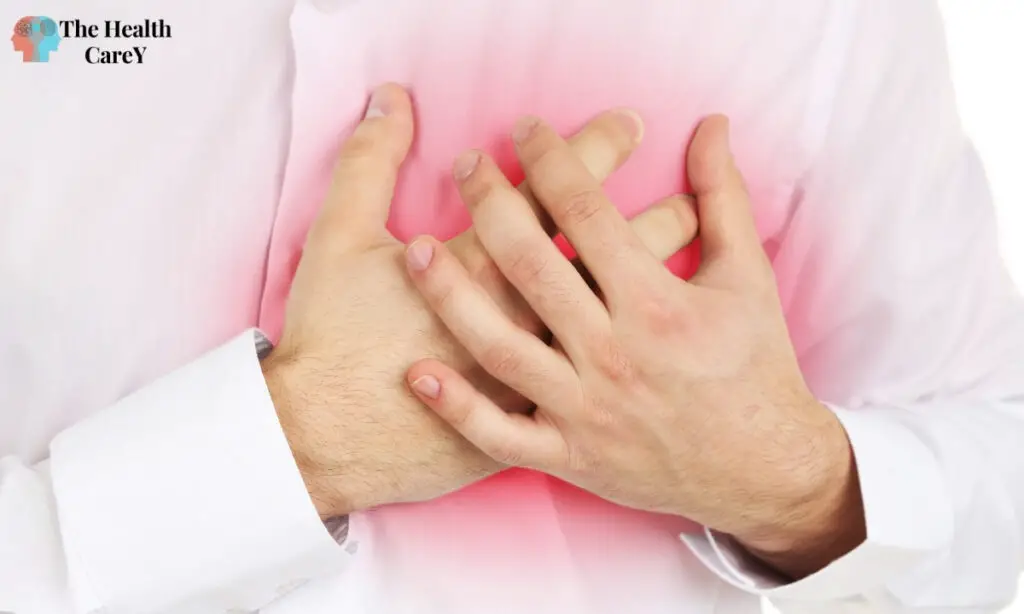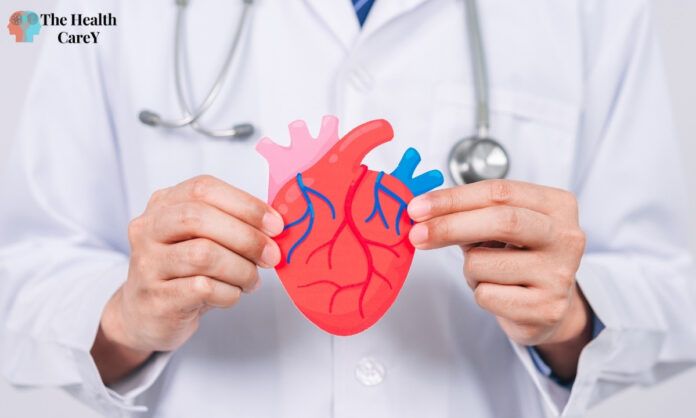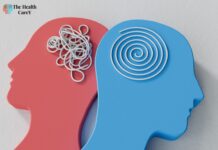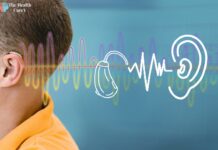Dehydration is common when your body loses more fluids than it takes in. It can lead to various symptoms, including headaches, fatigue, dizziness, and muscle cramps. But did you know that dehydration can also cause heart palpitations? In this article, you will learn about the link between dehydration and heart palpitations, how dehydration affects the heart, and how to prevent and treat dehydration-induced heart palpitations.
Understanding Dehydration: Dehydration occurs when your body loses more fluids than it takes in. This can happen due to excessive sweating, vomiting, diarrhea, or insufficient water. When dehydrated, your body tries to conserve water by reducing the urine produced and increasing the heart rate. This can put extra strain on your heart and lead to palpitations.
Understanding Heart Palpitations: Heart palpitations are the sensation of your heart beating too fast, too hard, or irregularly. A range of factors, including stress, anxiety, caffeine, alcohol, and certain medications, can cause them. When heart palpitations occur with dehydration, it can indicate that your body is under stress and needs more fluids.
What is Dehydration?
Dehydration occurs when your body loses more fluids than it takes in. It can happen when you don’t drink enough water, lose too much fluid through sweating, vomiting, or diarrhea, or have a medical condition that makes it hard for your body to retain fluids.
Causes of Dehydration
Several factors can cause dehydration. Some of the common causes include:
- Fever: When your body temperature rises, you sweat more, which can lead to dehydration.
- Diarrhea: Frequent watery stools can cause you to lose a lot of fluids and electrolytes.
- Vomiting: Like diarrhea, vomiting can lead to dehydration by causing you to lose fluids and electrolytes.
- Thirst: You can become dehydrated if you don’t drink enough water.
- Decreased urination: If you don’t urinate often, your body can’t eliminate excess fluids, which can lead to dehydration.
- Dry mouth: A dry mouth can indicate that you drink insufficient water.
- Excessive sweating: When you sweat a lot, you lose fluids and electrolytes, which can cause dehydration.
Symptoms of Dehydration
Dehydration can cause a range of symptoms, including:
- Headache and dizziness
- Rapid heart rate
- Nausea and vomiting
- Fatigue and weakness
- Dry mouth and throat
- Decreased urine output
- Dark yellow urine
- Dry skin
- Muscle cramps
If you experience these symptoms, drinking water or fluids containing electrolytes, such as sports drinks, is essential.
Dehydration can also cause heart palpitations when your heart beats abnormally. When you’re dehydrated, your blood volume decreases, and your heart has to work harder to pump blood through your body. This extra strain on your heart can cause palpitations.
To prevent dehydration, drinking plenty of water and fluids containing electrolytes is essential. You should also eat foods high in water, such as fruits and vegetables. If you’re experiencing symptoms of dehydration, it’s necessary to seek medical attention.
Understanding Heart Palpitations
What are Heart Palpitations?
Heart palpitations are sensations of your heart beating faster, fluttering, pounding, or skipping a beat. They can be felt in your chest, throat, or neck. Various factors, including stress, exercise, medication, and dehydration, can cause heart palpitations. They can also be a symptom of an underlying medical condition, such as an abnormal heart rhythm.
Symptoms of Heart Palpitations
In addition to the sensation of your heart beating irregularly, heart palpitations can also be accompanied by other symptoms. These can include headache, chest pain, nausea, dizziness, fatigue, and shortness of breath. If you experience any of these symptoms and heart palpitations, seeking medical attention is essential.
Heart palpitations can be a normal response to stress or exercise. Still, if they occur frequently or are accompanied by other symptoms, it may indicate an underlying medical condition. Dehydration can also cause heart palpitations, as the heart has to work harder to pump blood when the body is dehydrated.
If you experience heart palpitations, it is essential to stay hydrated and avoid triggers such as caffeine and alcohol. If the palpitations persist or are accompanied by other symptoms, it is vital to seek medical attention to rule out any underlying medical conditions.
How Dehydration Affects the Heart
Dehydration can affect various aspects of your body, including your heart. In this section, we’ll explore how dehydration affects the heart rate and blood pressure.
Dehydration and Heart Rate
When dehydrated, your body conserves water by reducing urine output and sweating. This can cause your heart rate to increase as your body tries to compensate for the decreased blood volume. This can sometimes lead to heart palpitations or a sensation of your heart beating rapidly or irregularly.
Dehydration can also cause changes in the electrolyte balance in your body, which can affect how your heart beats. For example, low potassium levels (a mineral that helps regulate heart function) can cause arrhythmias or abnormal heart rhythms.
Dehydration and Blood Pressure
Dehydration can also cause your blood pressure to drop as your body tries to conserve water. This can cause symptoms such as dizziness, lightheadedness, and fainting.
However, in some cases, dehydration can cause your blood pressure to increase. This is because when you’re dehydrated, your body produces more of a hormone called vasopressin, which causes your blood vessels to constrict. This can lead to hypertension or high blood pressure.
It’s important to note that chronic dehydration (or dehydration that occurs over a long period) can increase your risk of developing heart disease and other cardiovascular problems. This is because dehydration can cause your blood to become thicker and more dense, making it harder for your heart to pump blood effectively.
In summary, dehydration can affect your heart rate and blood pressure in various ways. If you’re experiencing symptoms such as heart palpitations, dizziness, or fainting, staying hydrated and seeking medical attention, if necessary, is essential.
Headache and Heart Palpitations
If you are experiencing both headaches and heart palpitations, it could be due to various causes. Common causes include stress, dehydration, caffeine, alcohol, and tobacco use.
Dehydration can cause a decrease in the volume of urine and dark urine, which can lead to both heart palpitations and headaches. When your body is dehydrated, your heart has to work harder to pump blood, which can cause palpitations. At the same time, your brain may not be getting enough oxygen, which can lead to headaches.
Stress is another common cause of both headaches and heart palpitations. When you are stressed, your body releases adrenaline, which can cause your heart to beat faster and harder. This can lead to palpitations and headaches due to the increased tension in your neck and scalp muscles.
Caffeine and other stimulants can also cause both heart palpitations and headaches. These substances can increase your heart rate, which can lead to palpitations. They can also cause your blood vessels to constrict, which can lead to headaches.
Alcohol and tobacco use can also contribute to both headaches and heart palpitations. Alcohol can cause your blood vessels to dilate, which can lead to headaches. It can also cause your heart to beat faster and harder, leading to palpitations. Tobacco use can cause similar effects on your heart and blood vessels, leading to headaches and palpitations.
If you are experiencing both headaches and heart palpitations, it is vital to identify the underlying cause. If you suspect that dehydration may be the cause, make sure to drink plenty of water. If stress is the cause, try relaxation techniques such as meditation or deep breathing. If caffeine, alcohol, or tobacco use is the cause, consider reducing your intake or quitting altogether.

Heart Palpitations from Dehydration
Dehydration occurs when your body loses more fluids than it takes in, leading to various symptoms, including heart palpitations. When your body is dehydrated, the heart has to work harder to pump blood, and this can cause the heart to beat irregularly or faster than usual.
If you are experiencing heart palpitations, it is essential to identify the underlying cause. Dehydration is one possible cause of heart palpitations, but other factors such as stress, anxiety, and certain medications can also trigger them.
Dehydration can lead to an electrolyte imbalance in your body, which affects the heart’s ability to function correctly. Electrolytes are sodium, potassium, and magnesium minerals that help regulate your body’s fluid balance and keep your heart beating regularly. When dehydrated, your electrolyte levels can become imbalanced, leading to heart palpitations.
Strenuous exercise, especially with high heat, can cause dehydration, elevated heart rate, and heart palpitations. Staying hydrated during exercise and avoiding overexertion is essential to prevent dehydration and heart palpitations.
Drinking enough water and electrolyte-rich fluids regularly is essential to prevent heart palpitations from dehydration. The recommended daily water intake is around eight glasses, which can vary depending on age, weight, and activity level. If you are prone to dehydration or have a medical condition affecting your fluid balance, talk to your doctor about how much water you should drink daily.
In summary, dehydration can cause heart palpitations due to an electrolyte imbalance and increased strain on the heart. To prevent heart palpitations from dehydration, staying hydrated by drinking enough fluids regularly is essential. If you experience frequent or severe heart palpitations, consult your doctor to identify the underlying cause and receive appropriate treatment.
Dehydration-Induced Heart Palpitations
Dehydration occurs when your body loses more fluids than you take in. This can happen for various reasons, such as sweating, urination, vomiting, diarrhea, and not drinking enough fluids. When your body is dehydrated, it affects the normal functioning of your organs, including your heart.
Heart palpitations are a common symptom of dehydration. When you are dehydrated, your blood volume decreases, and your heart has to work harder to pump blood throughout your body. This extra stress on your heart can cause it to beat faster and irregularly, leading to heart palpitations.
Dehydration can also cause electrolyte imbalances in your body, further contributing to heart palpitations. Electrolytes are minerals in your body that help regulate your heartbeat. When your body is dehydrated, the levels of electrolytes such as potassium, magnesium, and calcium can become imbalanced, leading to heart palpitations.
In addition to heart palpitations, dehydration can cause headaches, dizziness, fatigue, confusion, and lightheadedness. These symptoms can further exacerbate your heart palpitations and make you feel worse.
To prevent dehydration-induced heart palpitations, staying hydrated by drinking plenty of fluids throughout the day is essential. It would be best to avoid excessive sweating and urination, especially in hot weather or during exercise. If you experience heart palpitations, headache, chest pain, rapid heart rate, nausea, dizziness, or fatigue, it is essential to seek medical attention immediately.
In summary, dehydration can cause heart palpitations by decreasing blood volume, causing an electrolyte imbalance, and putting extra stress on your heart. To prevent dehydration-induced heart palpitations, stay hydrated and seek medical attention if you experience any symptoms.
High Heart Rate and Headache
Dehydration can cause your heart to beat faster than usual. This is because when you’re dehydrated, your body tries to conserve water by reducing the amount of urine produced. As a result, the blood volume in your body decreases, and your heart has to work harder to pump blood to your organs. This can lead to an increased heart rate, also known as tachycardia.
In addition to an increased heart rate, dehydration can also cause headaches. When dehydrated, your brain tissue loses water, causing it to shrink and pull away from the skull. This triggers pain receptors, leading to a headache.
Certain lifestyle factors may also cause palpitations and a headache together. These include stress, alcohol, caffeine or other stimulants, tobacco use, and exposure to smoke. If you’re experiencing both high heart rate and headache, it’s important to consider these factors and make any necessary lifestyle changes.
To prevent dehydration from causing a high heart rate and headache, staying hydrated is essential. Drinking plenty of water throughout the day can help keep your body hydrated and prevent these symptoms from occurring. Avoiding alcohol, caffeine, and other stimulants can also help prevent palpitations and headaches.
In summary, dehydration can cause both high heart rate and headache. By staying hydrated and making necessary lifestyle changes, you can prevent these symptoms from occurring and maintain good overall health.
Risk Factors and Complications
Dehydration can cause heart palpitations, which are uncomfortable or unusual heartbeats. Several risk factors and complications may increase the likelihood of experiencing heart palpitations due to dehydration.
Dehydration occurs when the body loses more fluids than it takes in. This can happen due to various reasons, such as excessive sweating, diarrhea, vomiting, and not drinking enough fluids. When the body is dehydrated, the heart has to work harder to pump blood, which can lead to heart palpitations.
The following factors can increase the risk of experiencing heart palpitations due to dehydration:
- Exercise: Intense physical activity can cause sweating, leading to dehydration. Dehydration during exercise can cause an increase in heart rate and palpitations.
- Medications: Certain medications, such as diuretics, which increase urine production, can cause dehydration and heart palpitations.
- Alcohol, caffeine, tea, and coffee: These drinks can cause dehydration and increase the likelihood of heart palpitations.
- Nicotine: Smoking or using other tobacco products can cause dehydration and lead to heart palpitations.
- Stress: Stress can cause dehydration by increasing sweating and leading to an increase in heart rate and palpitations.
- Pregnancy: Pregnant women are more susceptible to dehydration due to increased fluid requirements. Dehydration during pregnancy can cause heart palpitations.
- Anemia: Anemia, a condition with a lack of red blood cells, can increase the likelihood of heart palpitations due to dehydration.
- Menopause: Menopausal women may experience heart palpitations due to dehydration, as hormonal changes can cause hot flashes and sweating.
- Overactive thyroid: Hyperthyroidism, a condition where the thyroid gland produces too much thyroid hormone, can cause dehydration and heart palpitations.
- High and low blood pressure: Both high and low blood pressure can increase the likelihood of heart palpitations due to dehydration.
- Heart attack and heart conditions: Dehydration can increase the risk of heart attack and other heart conditions, which can cause heart palpitations.
- Arrhythmias: Dehydration can cause an imbalance of electrolytes, leading to arrhythmias and heart palpitations.
- Heart palpitations after eating: Dehydration can cause a drop in blood pressure, leading to heart palpitations after eating.
It is important to stay hydrated by drinking enough fluids and avoiding excessive alcohol, caffeine, and nicotine intake. If you experience heart palpitations, seeking medical attention to determine the underlying cause and receive appropriate treatment is essential.
Diagnosis and Tests of Headache and Heart Palpitations
If you experience headaches and heart palpitations, it is important to seek medical attention to determine the underlying cause. Your doctor will evaluate your symptoms and medical history to determine if further testing is necessary.
To diagnose headaches and heart palpitations, your doctor may recommend the following tests:
- Electrocardiogram (ECG): This test measures the electrical activity of your heart and can detect any irregularities or abnormalities.
- Echocardiogram: This test uses sound waves to create images of your heart and can detect any structural abnormalities or problems with blood flow.
- Blood test: This test can check for any underlying medical conditions causing your symptoms, such as anemia or thyroid problems.
- Chest X-ray: This test can detect any abnormalities in your heart or lungs that may be causing your symptoms.
- Stress test: This test measures your heart’s response to physical activity and can detect any underlying heart problems.
- Holter monitor: This portable device records your heart’s activity over 24-48 hours and can detect any irregularities or abnormalities.
Dehydration can also cause heart palpitations, so your doctor may ask about your fluid intake and recommend increasing your water intake if necessary. If dehydration is suspected, your doctor may perform a blood test to check for electrolyte imbalances.
It is important to provide your doctor with a detailed medical history, including any medications you are taking, to help determine the underlying cause of your symptoms. If a heart problem is suspected, your doctor may refer you to a cardiologist for further evaluation and treatment.
If you experience headaches and heart palpitations, it is important to seek medical attention to determine the underlying cause and receive appropriate treatment.
Treatment and Prevention of Headache and Heart Palpitations
If you experience heart palpitations and headaches, you can try several treatment and prevention methods to alleviate your symptoms. Here are some options to consider:
Treatment
- Medical attention: If you experience severe or prolonged heart palpitations and headaches, seek medical attention immediately. This could be a sign of a more serious underlying condition.
- Hydration: Dehydration can cause heart palpitations and headaches, so drinking plenty of fluids can help alleviate symptoms. Aim for at least eight glasses of water per day.
- Diet: Eating a well-balanced diet that includes plenty of fruits, vegetables, lean proteins, and whole grains can help reduce the risk of heart palpitations and headaches. Avoid consuming too much caffeine, alcohol, or sugary foods.
- Exercise: Regular exercise can help improve heart health and reduce the risk of heart palpitations and headaches. Aim for at least 30 minutes of moderate-intensity exercise most days of the week.
- Relaxation techniques: Stress can trigger heart palpitations and headaches, so relaxation techniques like tai chi, yoga, meditation, or guided imagery can help reduce symptoms.
- Supplements: Certain supplements like magnesium, potassium, and calcium can help regulate heart rhythm and reduce the risk of heart palpitations. However, talking to your doctor before taking any supplements is important.
Prevention
- Lifestyle changes: Small changes like quitting smoking, reducing alcohol consumption, and managing stress can help prevent heart palpitations and headaches.
- Hydration: Staying hydrated is critical to preventing heart palpitations and headaches. Aim for at least eight glasses of water per day.
- Diet: Eating a well-balanced diet that includes plenty of fruits, vegetables, lean proteins, and whole grains can help reduce the risk of heart palpitations and headaches. Avoid consuming too much caffeine, alcohol, or sugary foods.
- Exercise: Regular exercise can help improve heart health and reduce the risk of heart palpitations and headaches. Aim for at least 30 minutes of moderate-intensity exercise most days of the week.
- Relaxation techniques: Relaxation techniques like tai chi, yoga, meditation, or guided imagery can help reduce stress and prevent heart palpitations and headaches.
- Medical attention: If you have an underlying medical condition that increases your risk of heart palpitations and headaches, it’s important to seek medical attention and follow your doctor’s treatment plan.
Impact of Lifestyle and Diet
Your lifestyle and diet can have a significant impact on your heart health and the occurrence of heart palpitations. Factors such as dehydration, diet, exercise, alcohol, caffeine, sugar, fat, cholesterol, water, fluids, tea, coffee, smoking, and lifestyle changes can all affect heart palpitations.
Dehydration can cause heart palpitations, and it is essential to stay hydrated to maintain heart health. When you are dehydrated, your blood volume decreases, which can lead to a faster heart rate and palpitations. Drinking enough water and fluids throughout the day can help prevent dehydration and reduce the risk of heart palpitations.
Diet can also play a role in heart palpitations. Certain foods and drinks, such as those high in caffeine or sugar, can trigger palpitations. Alcohol and smoking can also harm heart health and increase the risk of vibration. Eating a healthy diet rich in fruits, vegetables, lean protein, and whole grains can help maintain heart health and reduce the risk of vibration.
Exercise is essential for overall heart health, but listening to your body and not overdoing it is essential. Overexertion during exercise can lead to palpitations and other heart-related symptoms. It is crucial to start slowly and gradually increase your workouts’ intensity over time.
Making lifestyle changes such as quitting smoking, reducing alcohol consumption, and managing stress can also help maintain heart health and reduce the risk of vibration. It is essential to make these changes gradually and seek professional help if necessary.
In summary, maintaining a healthy lifestyle and diet is crucial for maintaining heart health and reducing the risk of heart palpitations. Staying hydrated, eating a healthy diet, exercising regularly, and making lifestyle changes can all contribute to a healthy heart and reduce the risk of palpitations.
Conclusion
In conclusion, dehydration can cause heart palpitations, and staying hydrated is essential to prevent this from happening. When you’re dehydrated, your heart has to work harder to pump blood, which can lead to palpitations. Additionally, dehydration can cause a drop in blood pressure, which can cause your heart to beat faster to compensate.
If you experience heart palpitations, seeking medical attention to rule out any underlying heart conditions is essential. However, drinking water can help alleviate your symptoms if you know you’re dehydrated.
It’s also important to note that dehydration can cause other symptoms, such as headaches, dizziness, and fatigue. These symptoms can be alleviated by staying hydrated. Additionally, chest pains and nausea can also be caused by dehydration, so it’s essential to keep hydrated to prevent these symptoms from occurring.
Prevention is vital when it comes to dehydration and heart palpitations. You should drink at least eight glasses of water daily to stay hydrated. If you’re exercising or spending time in hot weather, you may need to drink more water to stay hydrated.
In summary, staying hydrated is essential for overall health and can prevent symptoms such as heart palpitations, headaches, and fatigue. If you’re experiencing heart palpitations, seek medical attention to rule out any underlying heart conditions. However, drinking water can help alleviate your symptoms if you know you’re dehydrated.
Frequently Asked Questions
What are the warning signs of dehydration?
Some common signs of dehydration include thirst, dry mouth, fatigue, headache, dizziness, dark urine, and dry skin. If you are experiencing any of these symptoms, drinking water or other fluids is essential to rehydrate your body.
What causes heart palpitations?
Various factors, including stress, anxiety, exercise, caffeine, certain medications, and medical conditions such as arrhythmia, heart disease, and hyperthyroidism can cause heart palpitations.
How does dehydration affect heart rate?
When your body is dehydrated, your blood volume decreases, which can cause your heart rate to increase. This is because your heart has to work harder to circulate blood throughout your body.
Can dehydration cause chest pain and shortness of breath?
In severe cases of dehydration, chest pain and shortness of breath can occur. This is because your body is not getting enough oxygen due to the decreased blood volume.
What does a dehydrated heart feel like?
A dehydrated heart may feel like it is beating faster or more complex than usual. You may also experience heart palpitations or a fluttering sensation in your chest.
Can dehydration affect heart palpitations and cause anxiety?
Yes, dehydration can cause heart palpitations, which can lead to anxiety. It is essential to stay hydrated to prevent these symptoms from occurring.
Also Read:
How much is Normal Thyroid Size?





















